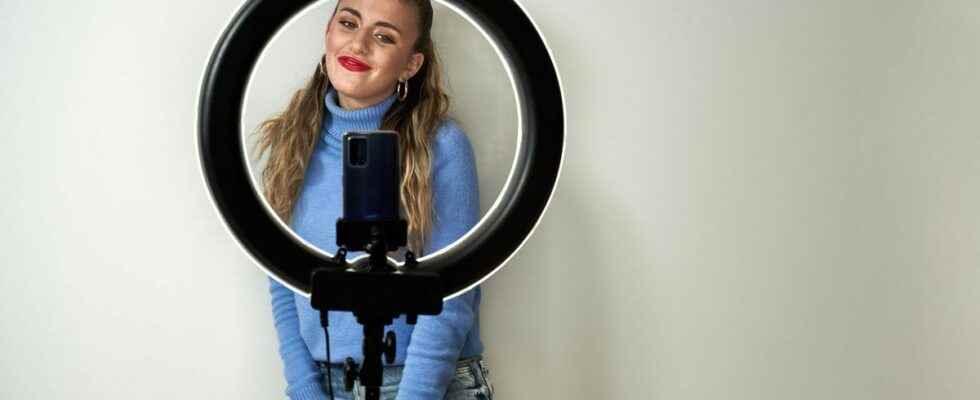Published on
Updated
Reading 3 mins.
in collaboration with
Dr Odile Bagot (Gynecologist-obstetrician)
According to an American study published on Monday, more and more influencers advocating naturalness and stopping the pill in their posts tend to communicate inaccurate information… and yet considered to be the truth by their subscribers.
As the favorite social networks of young people, TikTok and Youtube stand out as two essential sources of entertainment. However, a problem of veracity arises when it comes to obtaining information: thus, according to a recent Ifop poll, young people aged 11 to 24 who absorb information from validated or conspiratorial sources without any sorting on the networks , are becoming increasingly critical of science. It is also a concern when we talk about a more specific issue such as contraception.
According to an American study published in the journal Health Communication, more and more youtubers are appearing with a clear opinion on their choice of contraception and transmitting inaccurate information to their many subscribers, exposing young women to unplanned pregnancies.
The desire displayed to stop the pill but…
The authors of the research studied 50 videos posted on YouTube between December 2019 and December 2021 by accounts with between 20,000 and 2.2 million subscribers. According to their conclusions, 92% of the YouTubers studied said they used or had used hormonal contraception, but more than 7 out of 10 said they had stopped or planned to stop it, advocating in particular the desire for more naturalness in their lives and less chemistry.
A questioning of hormonal contraception which is also felt in France since according to another Ifop survey in 2018, 38% of women who stopped the pill say they did so to avoid the risks it may have on health.
… with few alternatives and reliable information
But according to the researchers, among the YouTubers studied, few say they have switched to an alternative method after having stopped taking a hormonal contraceptive and few give informed advice to avoid pregnancy. A situation that is not trivial in the life of a young woman. “Stopping hormonal contraception is risky because it increases the likelihood of an unplanned pregnancy” recalls one of the researchers before continuing:
“Influencer videos that discourage the use of a highly effective option without encouraging the use of another form of protection to prevent pregnancy and sexually transmitted infections constitute a public health concern”.
“Contraception must be tailor-made”
The speech of these young women to millions of subscribers makes Dr. Odile Bagot, gynecologist and member of the Doctissimo expert committee, jump.
“What these young women forget is that there is no right or wrong contraception in itself, but several methods that will suit one woman and not another. The influencer is not the universal woman. Contraception is always case by case, tailor-made.”
In addition, even if these young women are sincere and intend to share their experiences frankly with their subscribers, they lack hindsight and knowledge: “The influencer does not have the scientific bases to have a relevant speech, she uses subjectivity, a personal testimony. It’s not medicine”.
Finally, if everyone is free to opt for hormonal contraception, or to stop it (by taking the right information from their gynecologist or midwife, for example), the doctor wishes to remind you that hormonal contraception nevertheless responds to current needs:
“We have seen it for a few years, the bad reputation of the pill pushes young women to advocate the natural and stop the pill. But beyond the risk of unwanted pregnancy, this also means that they expose themselves to pathologies that contraception had corrected so far and that they can find again: endometriosis, fibroids, polyps or painful premenstrual syndrome”.
Details that influencers do not mention in their videos.
